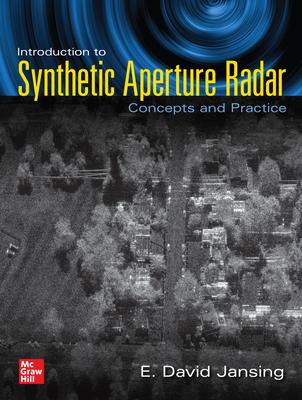Publisher's Note: Products purchased from Third Party sellers are not guaranteed by the publisher for quality, authenticity, or access to any online entitlements included with the product.
Explore the principles and applications of synthetic aperture radar
This comprehensive guide offers a solid grounding in synthetic aperture radar (SAR) fundamentals and techniques. Written by a remote sensing and signal processing expert, Introduction to Synthetic Aperture Radar: Concepts and Practice clearly explains data collection, image formation, error correction, and image quality. You will get concise descriptions of commonly used image formation algorithms, including the Range-Doppler Algorithm (RDA) and the Polar Formatting Algorithm (PFA). Continuous wave LFM systems, interferometry, polarimetry, and moving objects are discussed in detail.
Coverage includes:
- Origins of synthetic aperture radar
- Ranging and imaging
- Image formation and image processing tools
- Linear frequency-modulated chirp
- Image formation algorithms for quadrature demodulated data
- Image formation algorithms for dechirped data
- Autofocus
- Image quality and speckle reduction
- Linear frequency-modulated continuous wave systems
- Remote sensing
- Interferometry
- Moving objects in SAR
